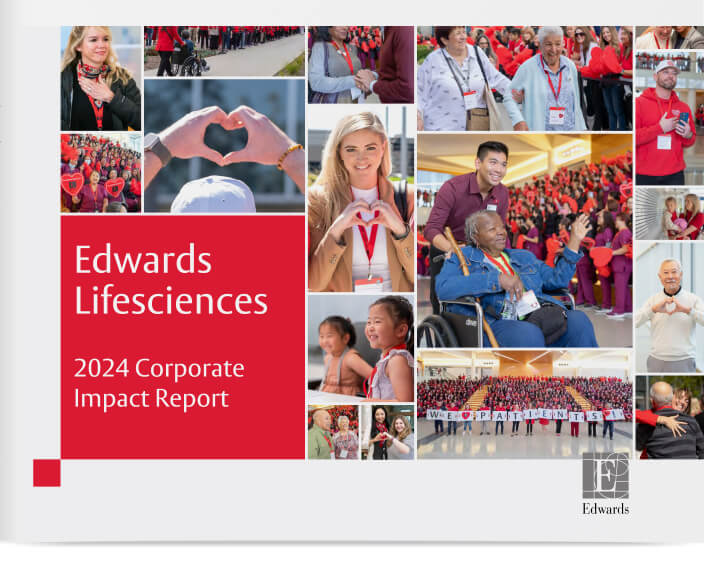
Letter from the CEO
Transforming patient lives, driving a sustainable future

Ensuring a sustainable future for patients is core to everything we do at Edwards. Sustainability, which we refer to as our corporate impact, reflects our dedication to those with unmet needs and the positive influence we have on patients, society and our stakeholders. This commitment is further demonstrated through our comprehensive environmental, social and governance practices.
Edwards’ leading business, transcatheter aortic valve replacement (“TAVR”), delivers profound value for patients, healthcare systems and society. This technology, backed by high-quality scientific evidence, has generated transformative benefits by improving survival, enhancing quality of life and optimizing healthcare resources. One analysis found that in 2020 alone, the net benefit of TAVR for those with symptomatic severe aortic stenosis (“SSAS”) in the U.S population was $43.4 billion, due to higher treatment rates, lower mortality and better quality of life.1
Charitable giving is another element of our impact, and it is at the heart of our culture at Edwards. I’m inspired by our efforts to strengthen our communities and improve patients’ lives and I’m proud that 90 percent of our employees engaged in charitable activities that impacted nearly 50 countries supported by the Edwards Foundation. Thanks to their commitment, the Foundation and our philanthropic initiative, Every Heartbeat Matters, we are on track to impact 2.5 million underserved patients by the end of 2025.
We have so many examples of the deep impact we are making around the world fueled by our passion for helping patients. And I am committed to leading this effort with integrity, transparency, and a focus on a better tomorrow.
Thank you for your continued support.



- J.P. Sevilla, et. al, 2022 Journal of Medical Economics, Cost-utility and cost-benefit analysis of TAVR availability in the US severe symptomatic aortic stenosis patient population.





